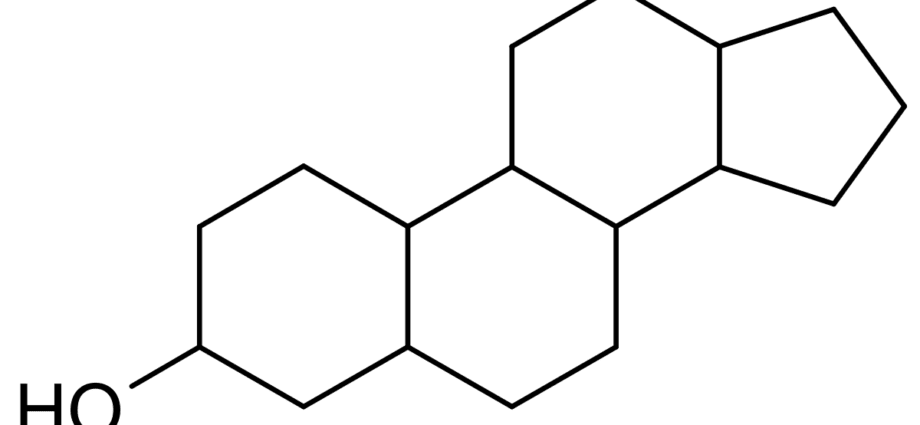Contents
These are crystalline fat-like substances with high biological activity. Most of the zoosterols in the human body are produced independently, and only 20% is used by our body from food.
Zoosterols can be found in the liver, nervous tissue, and other tissues and body fluids. These substances play an important role in the structure of the body’s cells, its protection and the production of hormones. The most important and best known zoosterol is cholesterol. In addition, coprosterol plays an important role in our body.
Zoosterol-rich foods:
General characteristics of zoosterols
Zoosterols, like plant sterols, are natural compounds. These are crystalline substances derived from steroids. Zoosterols do not dissolve in water, but react to other organic solvents and fats. They are one of the most important elements of animal and human cell membranes, and are actively involved in their metabolism.
The largest amount of zoosterols is found in the brain (from 2 to 4%), in the nervous tissue – 3%, in the liver cells – 0,5%, in the muscles – 0,25%. Zoosterols provide the necessary cell turgor, due to the normalization of osmotic pressure. Zoosterols almost never do their work on their own – they basically form compounds with other substances (proteins, fatty acids, etc.). The content of zoosterols in the body is greatly influenced by the type of fat consumed, as well as the presence of fat-soluble vitamins.
In the pharmaceutical industry, zoosterols are obtained using raw materials rich in these compounds, for example, processed meat products. Zoosterols are widely used in the production of vitamin D, steroid hormones and other drugs.
Daily requirement for zoosterols
Zoosterols, in particular, the most important of them cholesterol, should not exceed 200 mg / dL. An excess of zoosterols is just as bad as a lack of them, so it is very important to monitor their levels in the body.
The need for zoosterols is increasing:
- with the fragility of blood vessels;
- lack of vitamins, especially group D;
- imbalance of sex hormones;
- lack of adrenal hormones;
- insufficient production of bile;
- increased aggression or apathy.
The need for zoosterols decreases:
- after a heart attack or stroke;
- with an increased risk of cardiovascular disease;
- with obesity;
- with liver diseases;
- with impaired metabolism.
The assimilation of zoosterols
Zoosterols are derivatives of the body of animals and humans, so we can say with confidence that they are ideally absorbed. Problems can arise only with that part of them that comes in from the outside.
A diet high in trans and saturated fats can cause an excess of this substance. “External” zoosterols are partially processed in the intestine and then absorbed.
Vitamin B6, ascorbic and folic acid, and some other elements play an important role in the exchange of zoosterols.
Useful properties of zoosterols and its effect on the body
A sufficient content of zoosterols in the body prevents infertility, since zoosterols are involved in the production of hormones.
Also, a high level of zoosterols prevents the development of senile marasmus and other diseases associated with the psyche.
The main functions of zoosterols in the body:
- participate in the metabolism of cell membranes;
- prevent carbohydrates from crystallizing inside cells;
- maintain optimal levels of sex hormones;
- are an integral part of adrenal hormones;
- help produce bile;
- take part in the formation of vitamin D;
- necessary for the assimilation of vitamins A, E, K;
- important for the nervous system.
Interaction with other elements:
Zoosterols interact with proteins, fatty acids, vitamins and some microelements.
The involvement of zoosterols in the formation of vitamin D indicates their relationship with serum calcium levels.
Lack of zoosterols leads to disruption of the potassium-ion balance of the cell and, as a consequence, to the development of bone tissue diseases (osteoporosis, etc.).
Signs of a lack of zoosterols in the body
- weakness;
- lack of appetite;
- retardation;
- depression or aggression;
- decreased libido;
- enlarged lymph nodes;
- the risk of bleeding, as well as a violation of the blood count.
Signs of excess zoosterols
- leg pain with increased stress;
- cardiovascular diseases (heart attack, angina pectoris, stroke);
- an increase in body weight (the reason is a slowdown in metabolic processes);
- hormonal imbalance.
Factors affecting the amount of zoosterols in the body
Balanced nutrition and the health of the gastrointestinal tract are the guarantors of the optimal content of zoosterols in the body.
Excess zoosterols can be caused by the following:
- poor diet (excess foods rich in saturated fats can affect overall zoosterol levels);
- excess weight;
- bad habits (smoking, excessive alcohol consumption);
- passive lifestyle.
Lack of zoosterols can be associated with metabolic disorders and diseases of the gastrointestinal tract.
Zoosterol for beauty and health
We need zoosterols for the full functioning of the body. Adequate levels of zoosterols allow the body to produce hormones, develop, and enjoy life. After all, zoosterols are involved in the production of endorphins and serotonin.










